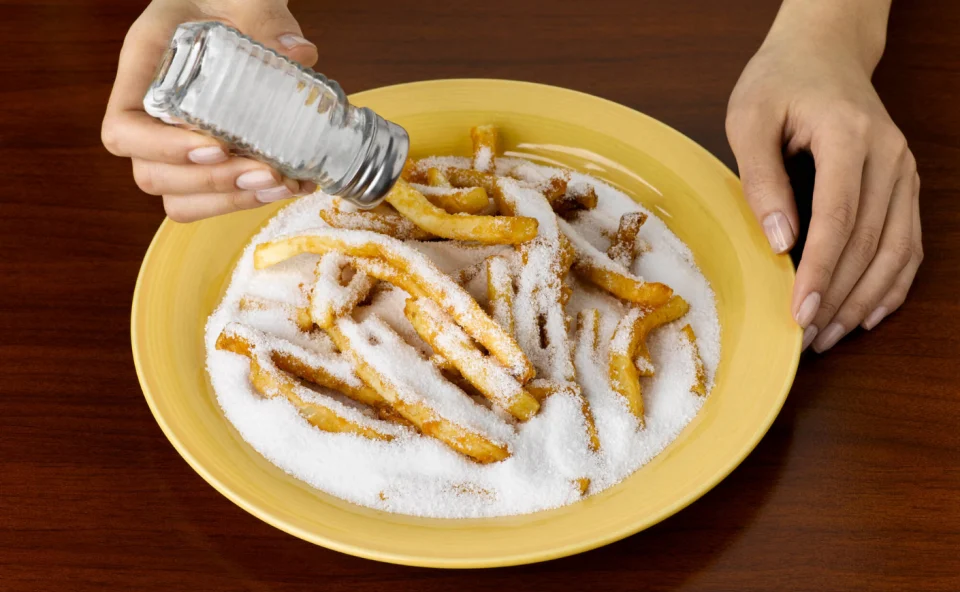NEW research may make you think twice before reaching for the salt. Nutritionists from the Center for Public Health at the University of Vienna found that people who add salt to most of their meals have a 41 percent higher chance of developing stomach cancer than those who rarely use the spice.
Previous research conducted in China, Japan and Korea has linked a salty diet to stomach cancer, but this is one of the first to show a link among residents of Western countries.
“Our research shows an association between the frequency of added salt and stomach cancer, even in Western countries,” said lead author Selma Kronsteiner, a nutritionist at the University of Vienna.
Although the Austrian study was only observational, older studies suggest that excess salt can corrode the protective lining of the stomach, causing tissue damage and leading to cancerous mutations.
It is ideal to consume less than 1500 mg of sodium per day. With the average Western diet, we consume 3500 mg of sodium per day, sometimes more.

“It may seem harmless to add a little salt for flavor, but consistently overdoing the amount of salt can be harmful,” the researchers wrote in their conclusion.
Researchers from the University of Vienna examined a database of 471,144 adults in the United Kingdom. It found that over an 11-year period, people who consumed the most salt were 41 percent more likely to develop stomach cancer than people who rarely added it to their meals.
Otherwise, alcohol consumption and tobacco smoking contribute significantly to the risk of developing stomach cancer, according to the American Cancer Society. If detected early, stomach cancer has a high survival rate. Some early symptoms include bloating, stomach upset and indigestion.








